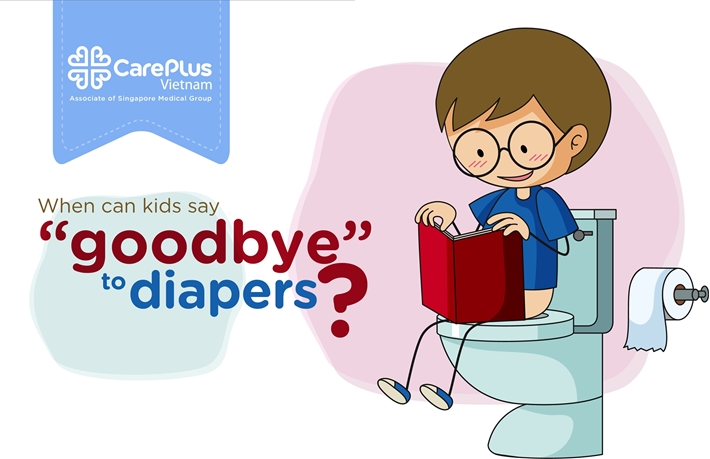When Can Kids Say "Goodbye" To The Diapers?
Many parents are unsure about when to start toilet teaching or "potty training." Not all kids are ready at the same age. Most children begin to show these signs between 18 and 24 months, although some may be ready earlier or later than that.

6/15/2018 10:21:33 AM
Many parents are unsure about when to start toilet teaching or "potty training." Not all kids are ready at the same age. Most children begin to show these signs between 18 and 24 months, although some may be ready earlier or later than that.
5 signs your child is ready to leave diapers behind
- Show an interest in seeing people to go to the toilet
- Keep a diaper dry for 2 hours or more
- Be able to let you know when a diaper is wet or soiled
- Be able to undress themselves
- Understand and follow simple instructions
Prepare your baby for potty training
Choose the right time carefully: avoid potty training during transitional or stressful times, i.g: you’re taking a vacation, moving your house, adding a new baby to the family,…
What should you prepare for potty training???
- Choose a potty that he or she likes
- Use words to express the act of using toilet (“pee”, “poop” and “potty”…)
- Remove a bowel movement (poop) from your child’s diaper, put it in the toilet, and tell your child that poop goes in the potty.
- Having your child try to sit on the potty to get used to it
- Ensure that your child get enough fiber and fluids to avoid constipation. If your child is constipated, the practice of potty training will be more difficult.
Potty training process often takes a few weeks or a few months. Therefore, you should not force your child if they’re not interested or ready to practice. Please be patient to wait until they’re ready to sit on the potty again.
Potty training
About timing
- Having your child sit on the potty at the time of the day they tend to have a bowel movement, i.g: 30 minutes after eating or after taking a shower.
- Try catching your child in the act of pooping _ changing the posture, become quiet,…
- Let your child leave the potty if he/she has no signs of pooing /peeing after 3-5 minutes
Encourage and remind your child
- You should praise your child for trying (For example: “You did well on the potty.”)
- You should ask your child if he/she needs to go to the toilet (but not often)
- And remember that accidents will happen. It's important not to punish potty-training children or show disappointment when they wet or soil themselves or the bed
Clothing
- Remove diapers (except for during snaps and bedtime), let him or her pick out their favorite underwear
- Simple clothes is a must at this stage as kids who are potty training need to be able to undress themselves.